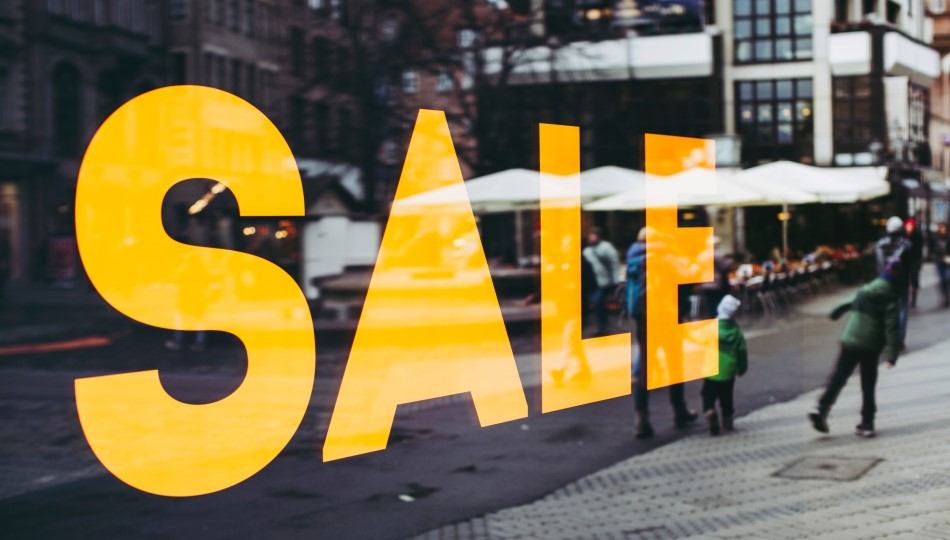Black Friday in Poland. When shopping fever turns into a fever dream...

Editor

related articles
related offers
When is Black Friday in 2024?
This year Black Friday falls on Friday, November 29. Cyber Monday, its inevitable follow-up, commences the week after, on December 2. However, even though this retail phenomenon was once limited to those two specific days, presently it has been extended to last significantly longer: from Black Friday and Cyber Monday to Black Weekend, Black Week, and finally, even rather unspecific Black Days. Who knows how far it will reach in the future?
“Black Fortnight”, anyone?
The rise of Black Friday in Poland
Black Friday originated in the United States around the 1970s. It falls on the Friday after Thanksgiving and marks the beginning of the Christmas shopping season, with its grand discounts and promotions. However, in Poland, the concept gained traction only in the early 2010s as international retailers and e-commerce platforms introduced the idea to the Polish market.
Initially met with skepticism, Black Friday faced challenges in gaining widespread recognition due to cultural differences and the absence of Thanksgiving as a holiday in Poland. Finally, retailers successfully framed Black Friday as a prelude to the Christmas shopping season. This clever marketing strategy helped bridge the cultural gap and seamlessly integrated the concept into the Polish retail calendar.
Since then, the event has gained tremendous popularity, evolving into a nationwide shopping spree. The rise of e-commerce has further fueled the Black Friday craze, making it more accessible to a broader audience.
Nowadays, we can part with our money, without ever needing to depart from our homes.
Shopping trends: Of customers, retailers, and marketing strategies
Polish consumers await Black Friday with the eagerness usually reserved only for the Second Coming.
After all, is there a better time to make significant purchases, whether it's upgrading electronic devices, refreshing their wardrobe, or finding the perfect gifts for the upcoming holiday season?
Apparently, according to many an advert – no, there is not.
Weeks before the event, consumers are bombarded with advertisements, promotional campaigns, and exclusive previews of the deals to come. This proves that Polish retailers, both online and brick-and-mortar, have embraced Black Friday wholeheartedly.
To entice shoppers to partake in their Black Friday promotions, they use strategies like:
- substantial discounts,
- buy-one-get-one-free deals,
- special/limited editions of products.
However, the by far most powerful contributing factor to the Black Friday frenzy is the limited-time offer nature of these promotions. It gives the whole affair an air of urgency, driving consumers to make quick decisions from fear that the best deals will soon disappear.
Controversies of Black Friday
While Black Friday brings excitement and economic benefits, it has not been without its share of controversies. The event has faced criticism for:
- promoting excessive consumerism,
- contributing to the environmental impact of disposable goods – for example: did you know that the textile and clothing industry is one of the chief contributors to global pollution?
- impulsive buying: emphasis on discounts and their limited-time nature may lead consumers to overlook the true value and necessity of their purchases,
- exploitation of retail workers: during the peak shopping period many stores have extended working hours, and the pressure to meet heightened demand can put a strain on employees.
Moreover, Black Friday was particularly infamous for unfair practices related to price manipulation. To combat some of them, the EU has recently created the Omnibus Directive.
Omnibus Directive – What new protection does it offer to the consumers?
As a result of the European Union’s Omnibus Directive, a new law came into force in Poland in January 2023. It is designed to safeguard customers from unfair practices by retailers. The most common were price manipulations – when the prices of products were raised just before the date, only to be later lowered on a “promotion”.
The Omnibus directive introduced a new requirement: now, in the case of a discount, an additional "third price" must be visible – that of the lowest price that was in effect during the preceding 30 days.
In summary, Black Friday in Poland has evolved from a novelty to a shopping trend that year by year shapes consumer behavior and the retail landscape. But as shopping fever begins to ignite customers and retailers alike, we have to learn how to walk the tightrope between the economic benefits and the need for sustainability and ethical consumer practices.
And look, with ever-present adverts heralding the coming of Black Friday, it is easy to succumb to the shopping fever. But just like with any fever, if it starts to prolong to a (black) week – yeah, we should probably see a doctor about that...
If you liked this article, you may also enjoy:
Pumpkins, leaves, and (magic) mushrooms – 3 reasons to fall in love with the Fall












